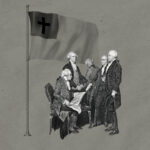This article is one of many informative articles in Joe Carter’s “9 Things You Should Know” series.
This week the Southern Baptist Convention meets in Baltimore, Maryland for its 156th annual meeting. Here are nine things you should know about America’s largest Protestant denomination.
1. The name Southern Baptist Convention refers to both the annual two-day convention and the decentralized organization comprised of 46,034 autonomous, local churches and 15.9 million members.
2. The Southern Baptist Convention (SBC) is a network of autonomous churches voluntarily banded together at state, regional, and national levels to engage in missions and ministry activities designed to fulfill the Great Commission (Matthew 28:19-20). Each church in the SBC is an autonomous local congregation of baptized believers that makes their own decisions on staffing, budget, programs, etc.
3. In 1814, Baptist churches in the U.S. joined together to create the General Missionary Convention of the Baptist Denomination. By 1845 the churches were divided over the issue of slavery. As church historian Miles Mullin explains, southern Baptists desired to make slavery a non-issue, while abolitionist forces in the North (and among northern Baptists) desired the convention to take a moral stand against it. The following year group of representatives from Southern churches created a new denomination, the Southern Baptist Convention.
4. In 1995, on the denomination’s 150th anniversary, the Convention voted to adopt a resolution on racial reconciliation that apologized for its racist roots, for condoning and perpetuating individual and systemic racism, and committed to eradicate racism in all its forms from Southern Baptist life and ministry. At its annual convention in 2012, the SBC elected as president Fred Luter Jr., the first African American to hold the position.
5. The SBC is directed by representatives of Southern Baptist churches, called messengers, who meet once a year for two days to adopt a unified missions and ministry budget called the Cooperative Program allocation budget, elect trustees to oversee the ministry entities of the Convention, receive reports from the SBC entities, and transact the business of the Convention.
6. The primary doctrinal statement for the SBC is the Baptist Faith and Message 2000, which outlines what the denomination believes about eighteen topics, including the Scripture, God, man, Jesus, salvation, baptism, and the church.
7. The principal means by which Southern Baptist churches fund their respective state convention ministries and the missions and ministries of the SBC is through the Cooperative Program (CP). Established in 1925, the CP depends upon the undesignated gifts given to it by Southern Baptist churches. By unifying the funding, the CP provides a workable way through which tens of thousands of like-minded churches can cooperate for the advancement and application of the gospel.
8. The SBC is comprised of the following entities: six seminaries; an International Mission Board, which sends and supports missionaries all over the world; an Ethics and Religious Liberty Commission, providing resources and leadership on ethical issues; Guidestone Financial Resources providing financial planning, insurance, and annuities for church and denomination staff members; a North American Mission Board, supporting the state conventions in evangelism, missions, and ministry, such as disaster relief; the Women’s Missionary Union, which serves as an auxiliary in promoting missions; LifeWay Christian Resources, the SBC publishing house; and an Executive Committee coordinating the day-to-day functions of the SBC.
9. A name change was first proposed in 1903, though never adopted. In 2012, a task force was appointed to once again study a possible name change to reflect that the denomination was national and international, and no longer just “Southern.” The task force recommend the convention maintain its legal name but adopt an informal, non-legal name for those who want to use it: “Great Commission Baptists.”
Free eBook by Tim Keller: ‘The Freedom of Self-Forgetfulness’
 Imagine a life where you don’t feel inadequate, easily offended, desperate to prove yourself, or endlessly preoccupied with how you look to others. Imagine relishing, not resenting, the success of others. Living this way isn’t far-fetched. It’s actually guaranteed to believers, as they learn to receive God’s approval, rather than striving to earn it.
Imagine a life where you don’t feel inadequate, easily offended, desperate to prove yourself, or endlessly preoccupied with how you look to others. Imagine relishing, not resenting, the success of others. Living this way isn’t far-fetched. It’s actually guaranteed to believers, as they learn to receive God’s approval, rather than striving to earn it.
In Tim Keller’s short ebook, The Freedom of Self-Forgetfulness: The Path To True Christian Joy, he explains how to overcome the toxic tendencies of our age一not by diluting biblical truth or denying our differences一but by rooting our identity in Christ.
TGC is offering this Keller resource for free, so you can discover the “blessed rest” that only self-forgetfulness brings.


































